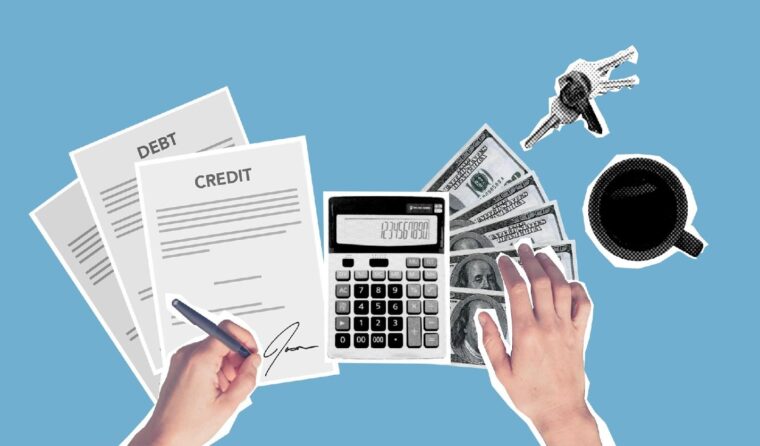In order to secure the ideal loan, it’s essential to do some comparison shopping. Seek a lender offering competitive rates and terms tailored specifically to your credit profile as well as considering factors like repayment terms and fees when making your choice.
Keep in mind that lenders have specific approval requirements, and may request documents like pay stubs or tax documents before providing approval.
What Are Personal Loans?
Personal loans provide financial relief in times of emergency or unexpected events, like medical bills and car repairs; as well as paying off high-interest credit card debt.
Your borrowing limit depends on your income and credit history. In order to secure a loan, lenders may require formal applications, credit checks, and income proof such as pay stubs or bank statements.
Furthermore, lenders will often run three-digit credit scores and evaluate debt-to-income ratios to assess any risks of defaulting.
Borrowers with an excellent history of making payments on time may qualify for lower interest rates.
Lenders want to ensure you can comfortably afford the monthly loan payments before giving you approval for a personal loan; one way of doing this is using free online tools to determine your total costs.
When considering whether a personal loan is right for you, keep in mind that its terms and fees can differ widely among lenders. Therefore, it is essential that you research all available lenders in Norway until finding one whose terms fit within your budget comfortably.
If unsure where to start looking for this type of financing solution, consulting with a certified financial planner or trusted advisor might help provide clarity. It is important to do your research before committing to any financial agreement.
Look for a co-signer

If you’re having difficulty qualifying for a loan on your own, seeking co-signer assistance might be an option. But you should only enlist someone willing to assume responsibility if your debt fails – this commitment could seriously damage both of your credit scores.
Furthermore, be sure to have an open dialogue with your co-signer about what to expect should any problems arise; this can help minimize risk in relation to both relationships and finances in the future.
Lenders consider many factors when determining whether you qualify for a loan and what your interest rate will be, including both you and your cosigner’s creditworthiness.
If they possess a high score, an unblemished report and stable income streams – making you more desirable to lenders – it will likely make it easier to secure loans with more favorable terms and reduced rates.
Before approaching friends or family to cosign for you, ensure that you conduct research to find an ideal lender with favorable terms.
Many online lenders provide loans for applicants with low financial scores and may provide more flexible loan repayment plans than traditional banks.
It’s advisable to compare terms from multiple lenders with tools like the one found here: forbrukslånlavrente.com/beste-forbrukslån/ as they each offer specific solutions based on your amount needed and your credit history. This is essential in helping you secure the best rate.
Cosigning takes on significant responsibility, so when selecting a cosigner it’s wise to seek someone you know well who understands and trusts you both financially and as an individual.
It is best suited for someone with whom there will be mutual understanding of financial obligations associated with cosigning a loan agreement.
Do not forget that having a cosigner on a loan could impact both of your credit scores, so only ask someone with good to excellent credit and the financial means to cover payments if needed.
Get prequalified

Prequalifying for a mortgage loan can provide valuable insight into your potential eligibility, helping to set the budget you will need when purchasing a home.
But be mindful that prequalification doesn’t guarantee you a loan; in fact, its rates and amounts could change as you progress with the application process.
Most lenders provide an easy and fast online prequalification tool that requires only basic financial questions to complete, typically leading to a soft check that won’t negatively impact your score.
Some lenders may allow you to submit documentation such as bank statements and pay stubs in order to streamline the application process; having these documents handy could even expedite it further; having proof of assets such as investments, retirement accounts and savings accounts will also be helpful to the process.
When making the decision to apply, your lender will conduct a complete financial report and evaluate all relevant financial information, such as income, debts, past addresses and personal identification documents.
It’s wise to have all necessary paperwork ready prior to starting this process as it can take some time and may require extensive paperwork for submission if you received gifts or loans to cover down payments; documentation from those sources may also be needed.
Finding the ideal loan depends on a personal assessment of your situation; taking the time to compare rates, fees and benefits will help you identify which loan would best meet your needs. If your credit is subpar, consider having someone co-sign or finding a lender who specializes in working with individuals in similar positions as yours.
Using Collateral

Collateral loans are secured credit products in which you pledge something of value as collateral to secure financing. Examples include mortgages and home equity lines of credit (HELOC).
Auto loans often use collateral like vehicles while personal loans backed by assets in bank accounts or certificates of deposit (CDs) may also qualify. Collateral may help you qualify for loans or credit products you might otherwise not be eligible for since lenders consider collateral-secured loans less risky.
One key advantage of collateral loans is their ease of qualification, even for individuals with less-than-stellar credit histories. By using assets as security, you’re effectively guaranteeing your loan payments – thus decreasing risk for lenders, making them more likely to approve your application.
However, should you fail to pay back the debt as agreed, your financial institution has the right to seize assets pledged as collateral against loans or credit cards in order to recoup its losses.
Collateral can help you secure better loan terms, including reduced interest rates. Lenders tend to offer lower rates on collateral loans since they view them as less risky. You might even be able to borrow larger sums depending on what asset is used as collateral.
Collateral can help you obtain a higher loan-to-value ratio from lenders. In general, this means they will lend a certain percentage of the value of the collateral (such as 80% for real estate). This can be useful if you wish to buy property but don’t have all of the funds readily available.
While collateral loans offer many advantages, it’s important to remember they may not be suitable for everyone. If you can’t afford the loss of your asset or lack funds in your savings account for repayment, a collateral loan may not be an appropriate solution for you.
Monthly loan payments will also be reported back to credit bureaus so any missed payments could harm your score.
Improve Your Credit Score

Good credit is vital for getting the best loan contract available. Unfortunately, not everyone has perfect credit and it may be challenging to raise your FICO score significantly over a short period of time – however with hard work it is possible.
One key component in raising your FICO score quickly is consistent payment history – though keeping track can be challenging but tools such as autopay and reminders may help.
Consider keeping your credit utilization low; this refers to how much debt you owe in relation to their total limit; it’s recommended that this falls below 30%. Keeping balances on revolving accounts at 30% or below can help boost your scores quickly.
Other key factors affecting your credit score include the length and activity of your credit history and recent account activity.
A longer credit history can benefit you, so try keeping any older accounts open as long as possible and prioritizing paying off those debts with higher interest rates first – this will increase your score further.
Increased personal assets are another great way to enhance your credit score and show lenders that you are financially stable; having something as a cushion if income decreases may help improve it as well, though this change will take time to reflect in your score.
Your best bet for maintaining a high credit score is to limit new lines of credit applications as much as possible, to prevent your score from taking an immediate hit.
When applying for new credit lines, credit bureaus usually conduct hard inquiries which could lower your score by several points. Instead, try searching pre-approved ones so the application process won’t trigger such inquiries.
Reduce hard inquiries on your credit report by taking advantage of one of Norway’s many free services to monitor it regularly. These services will keep an eye on your score while alerting you of any discrepancies so that they may be resolved directly with credit reporting agencies.
